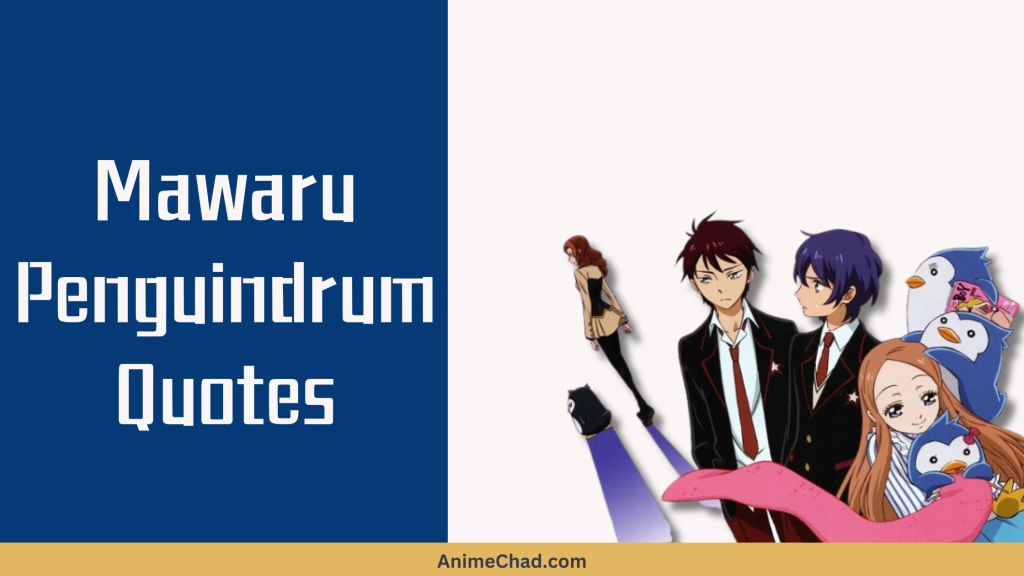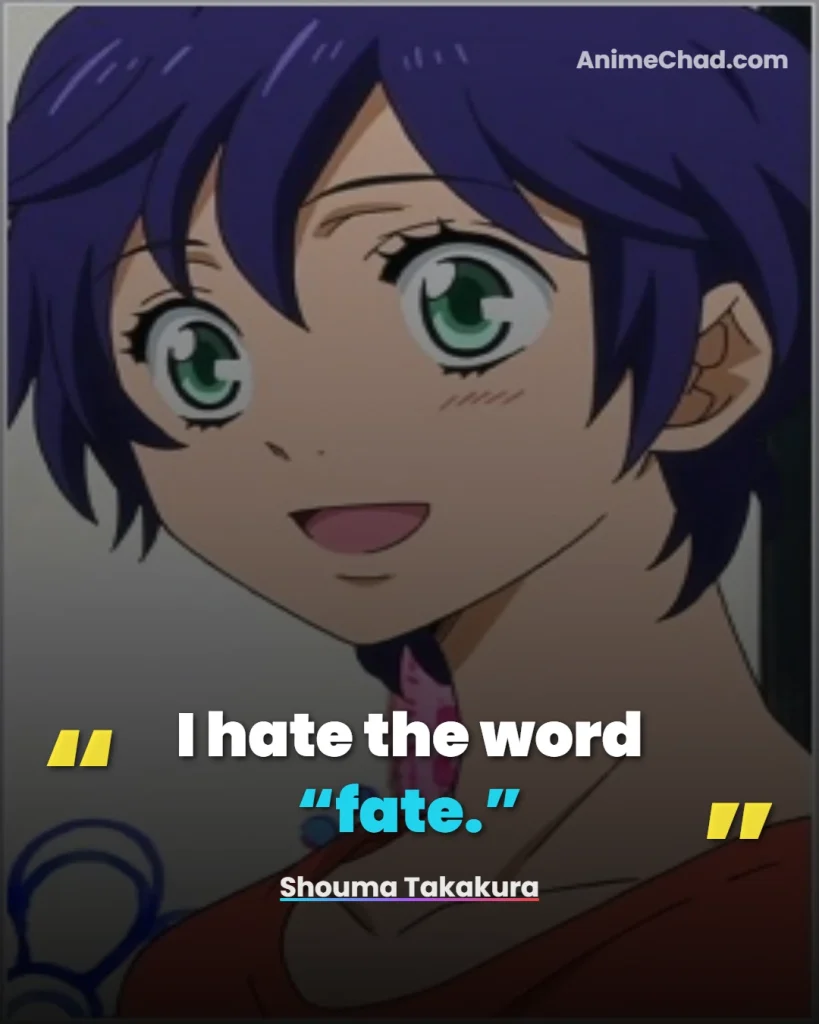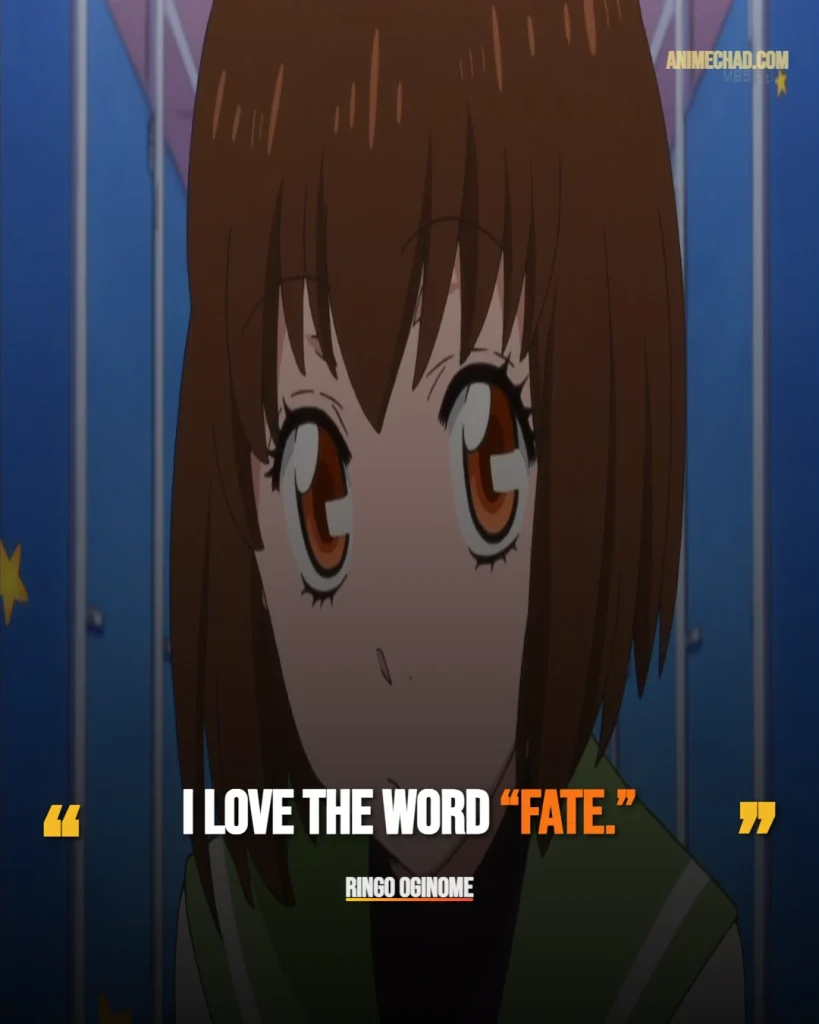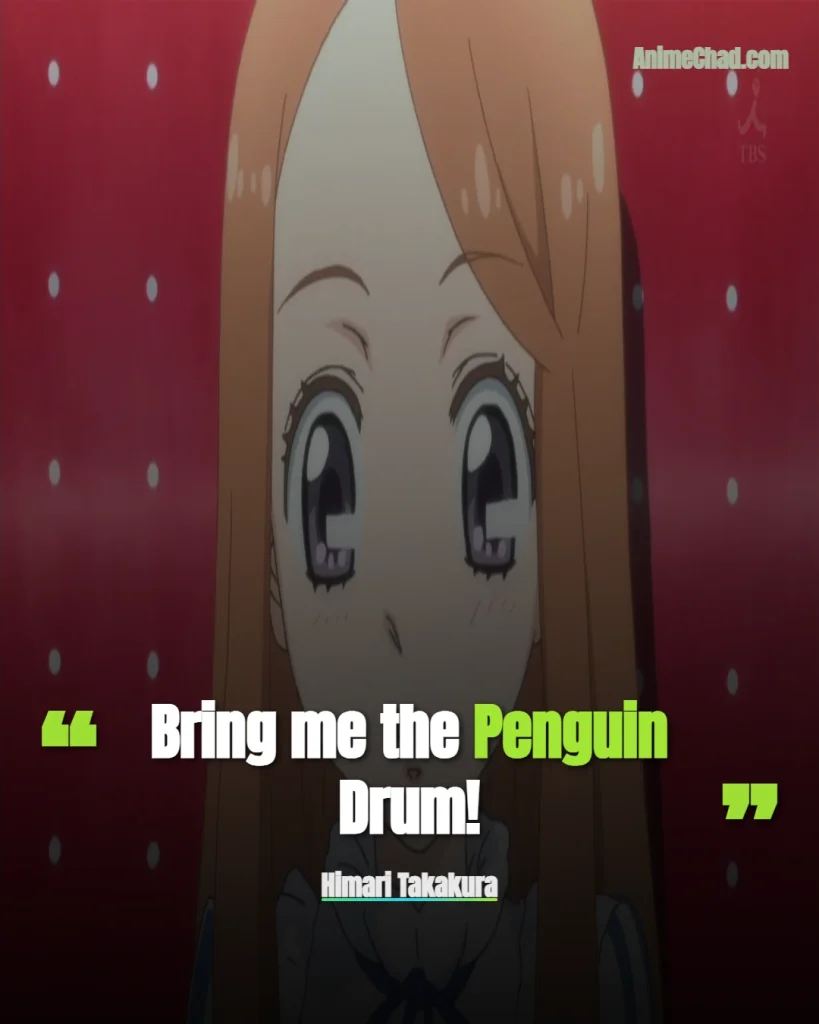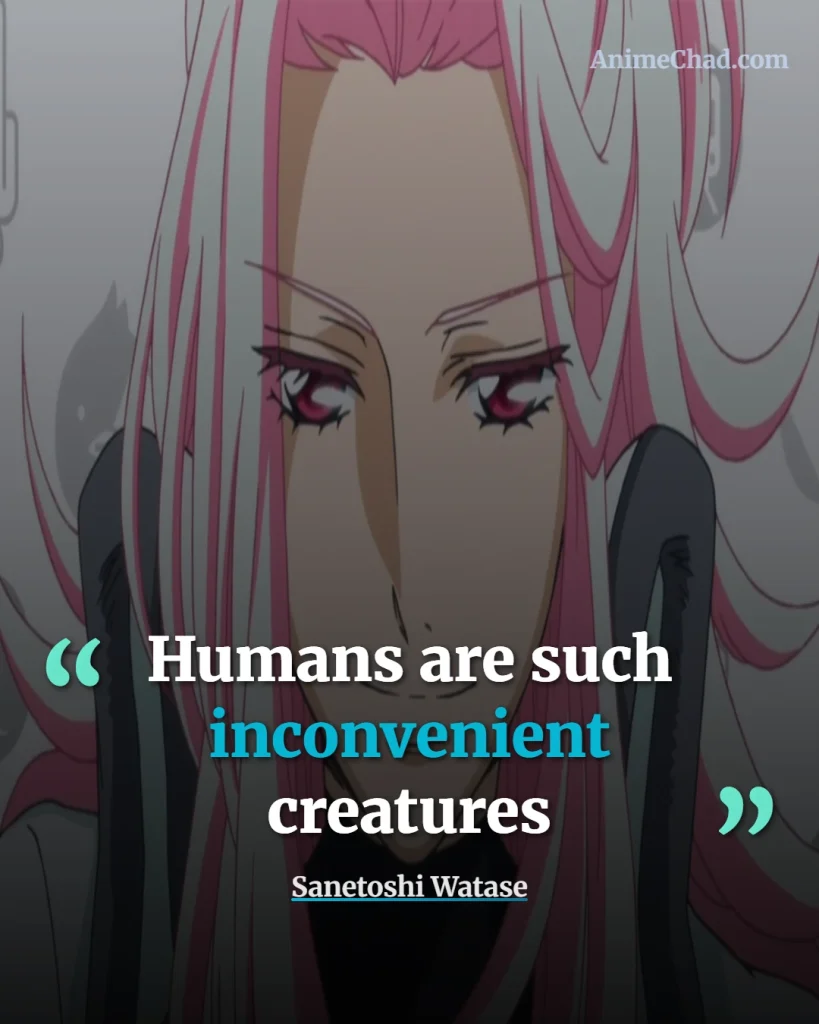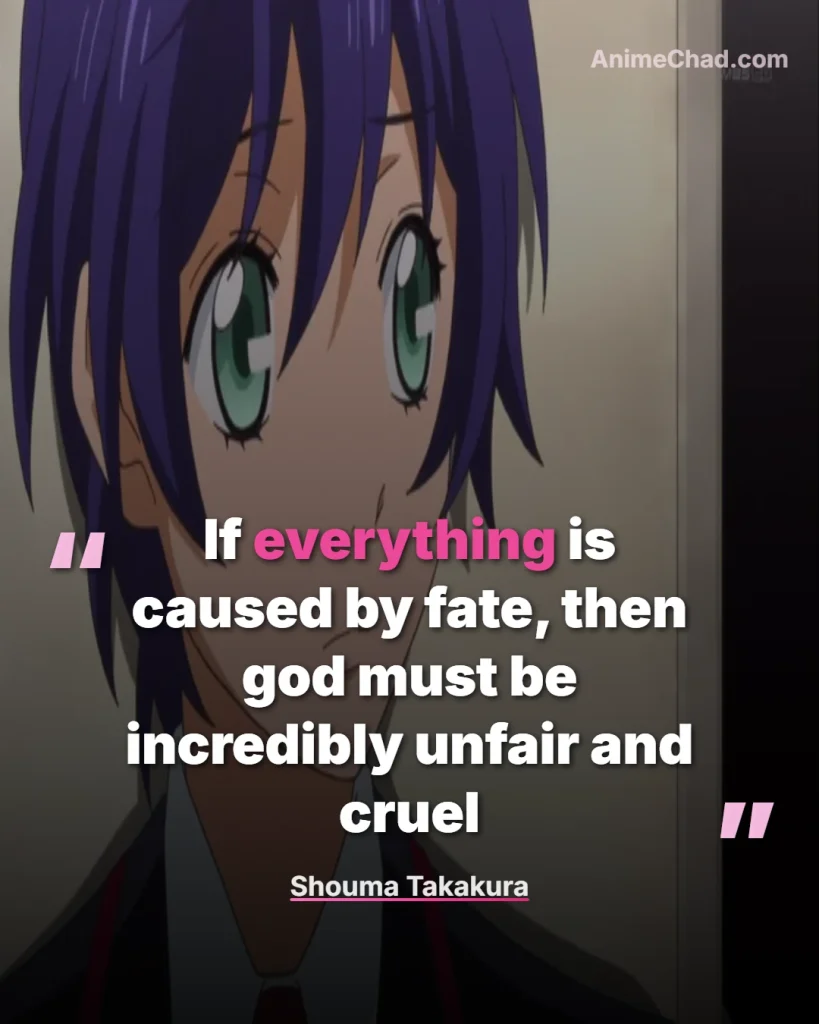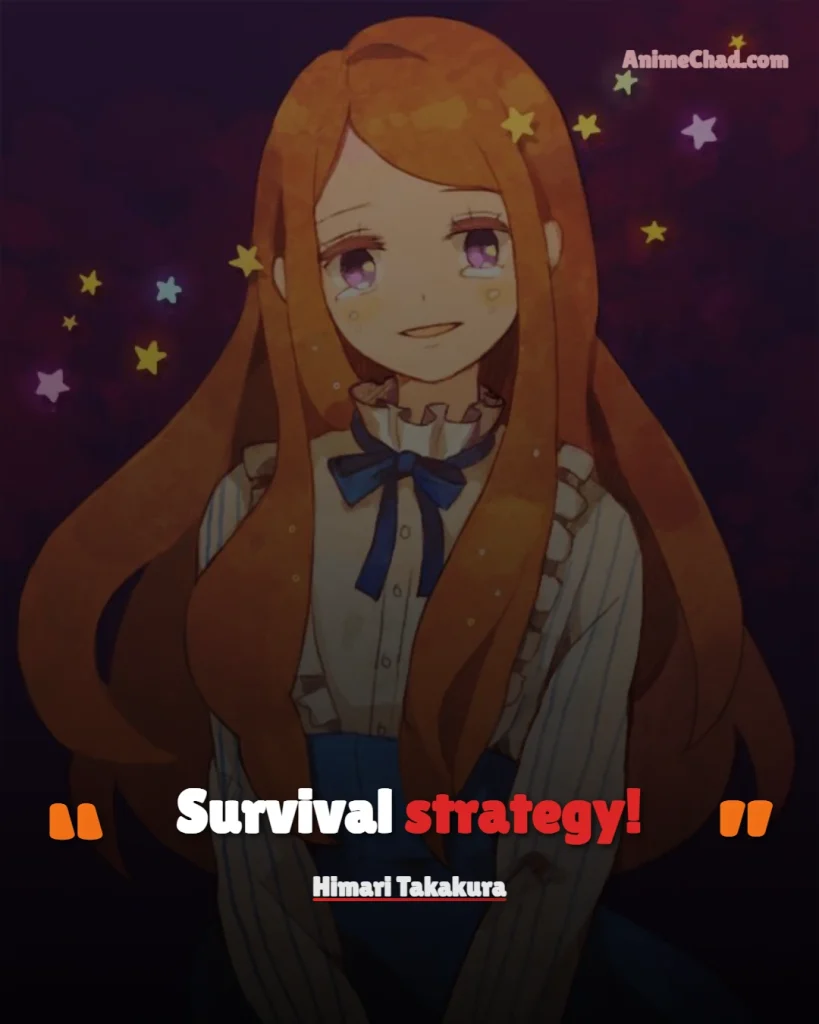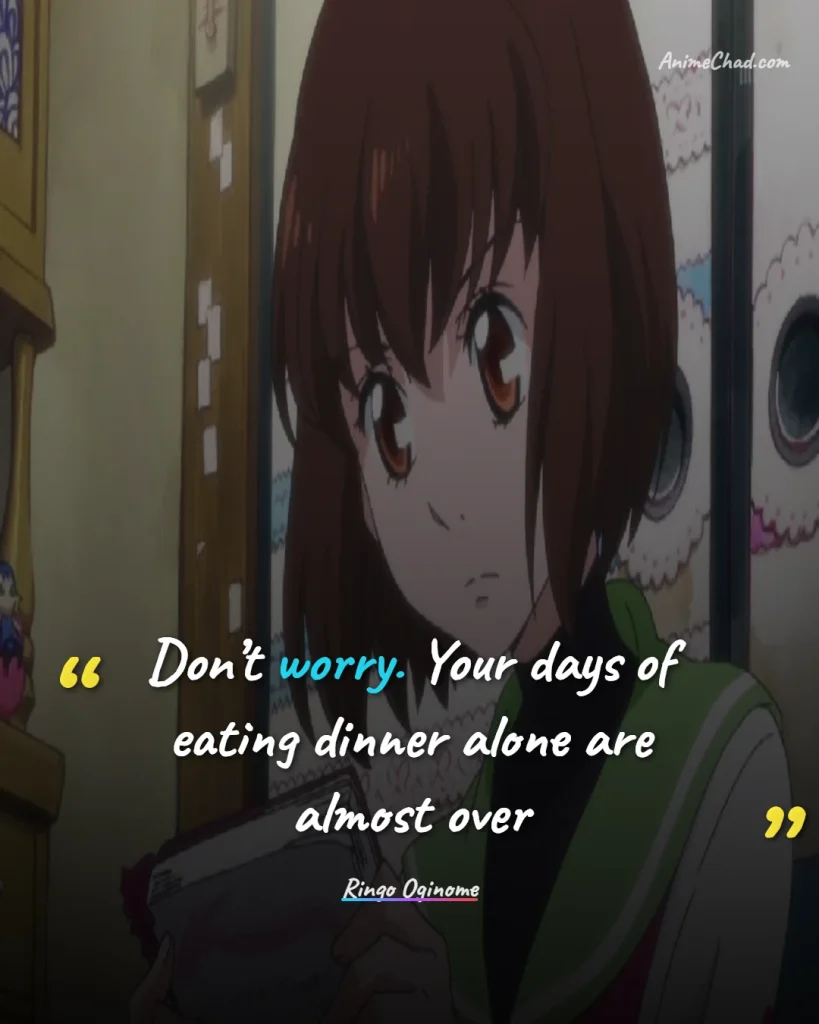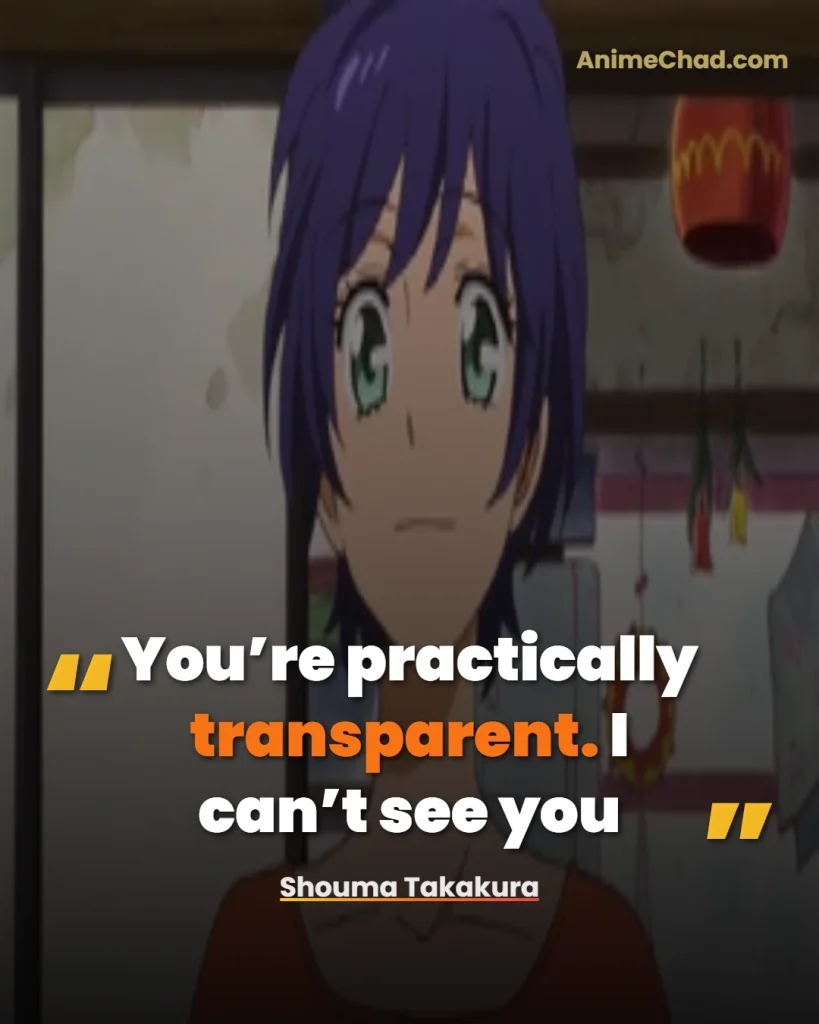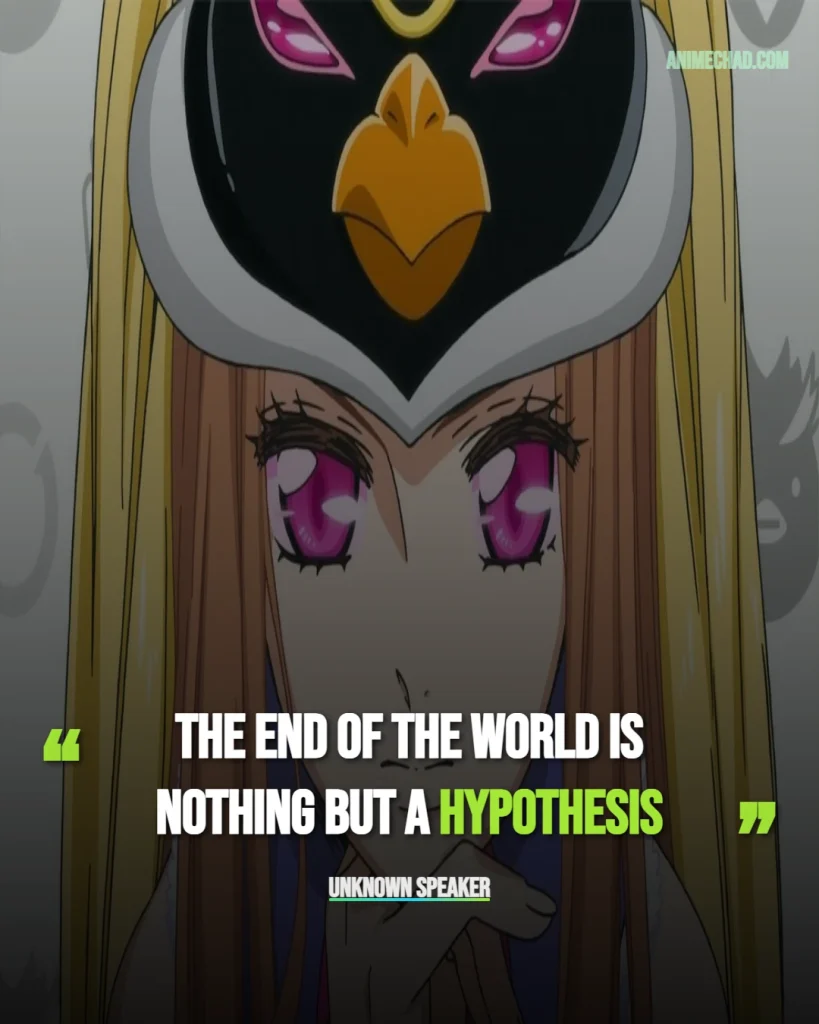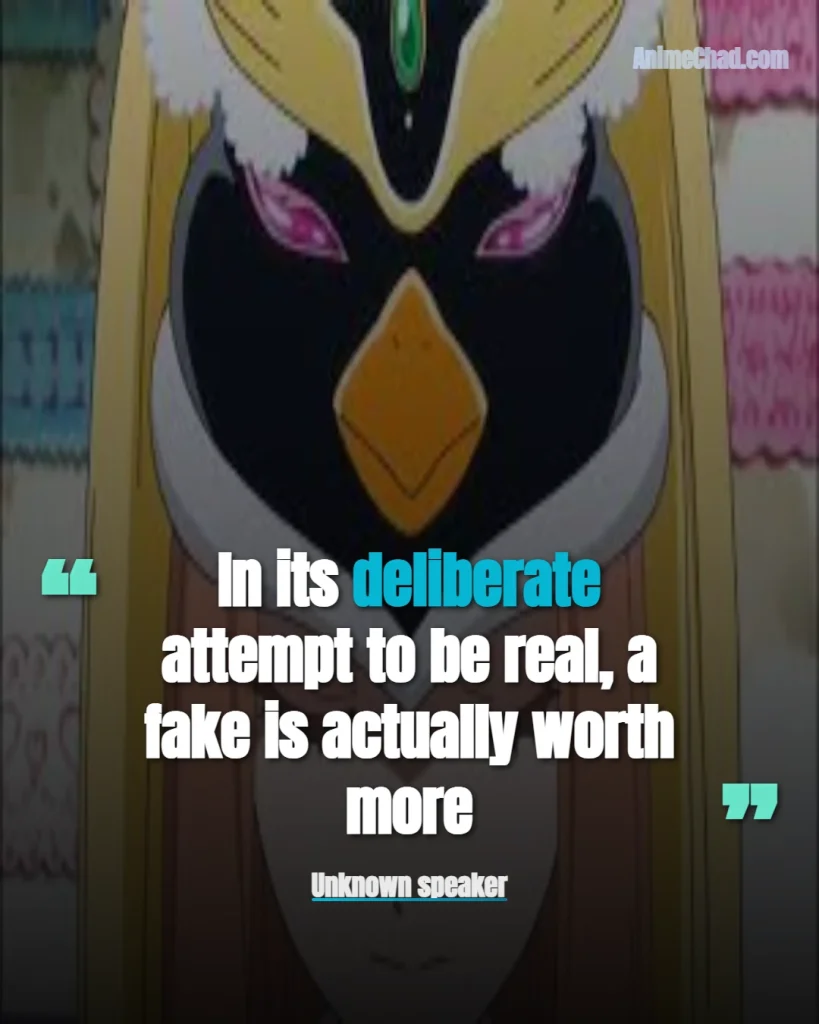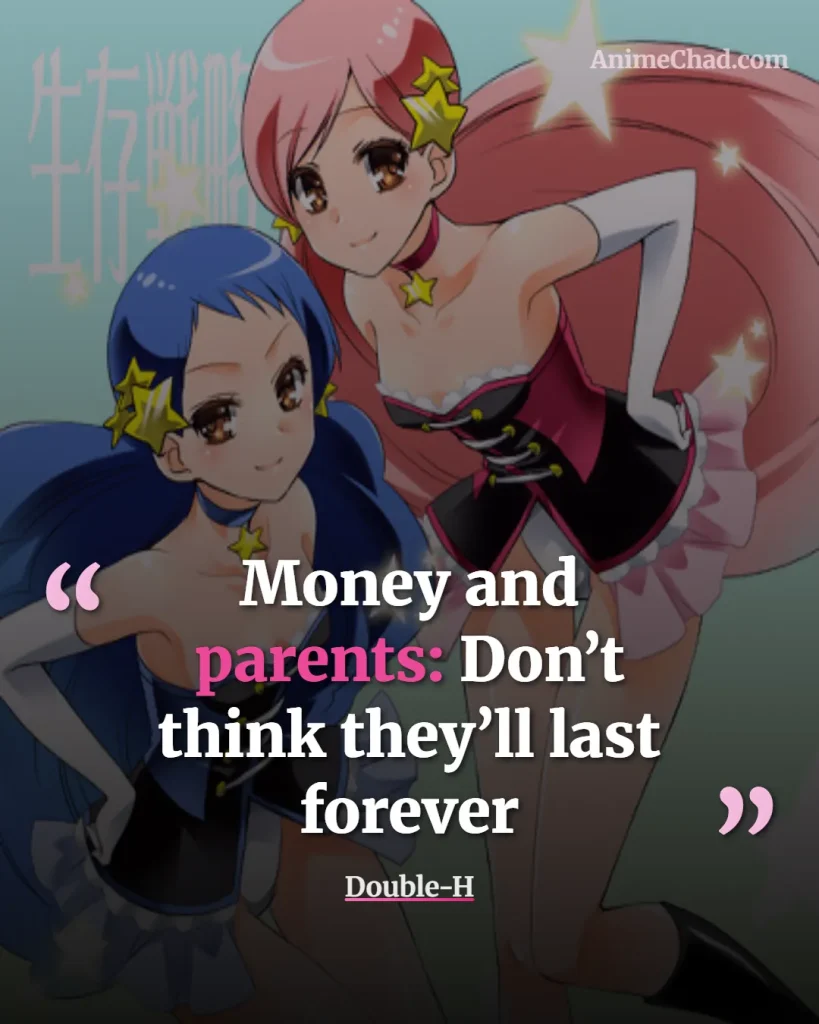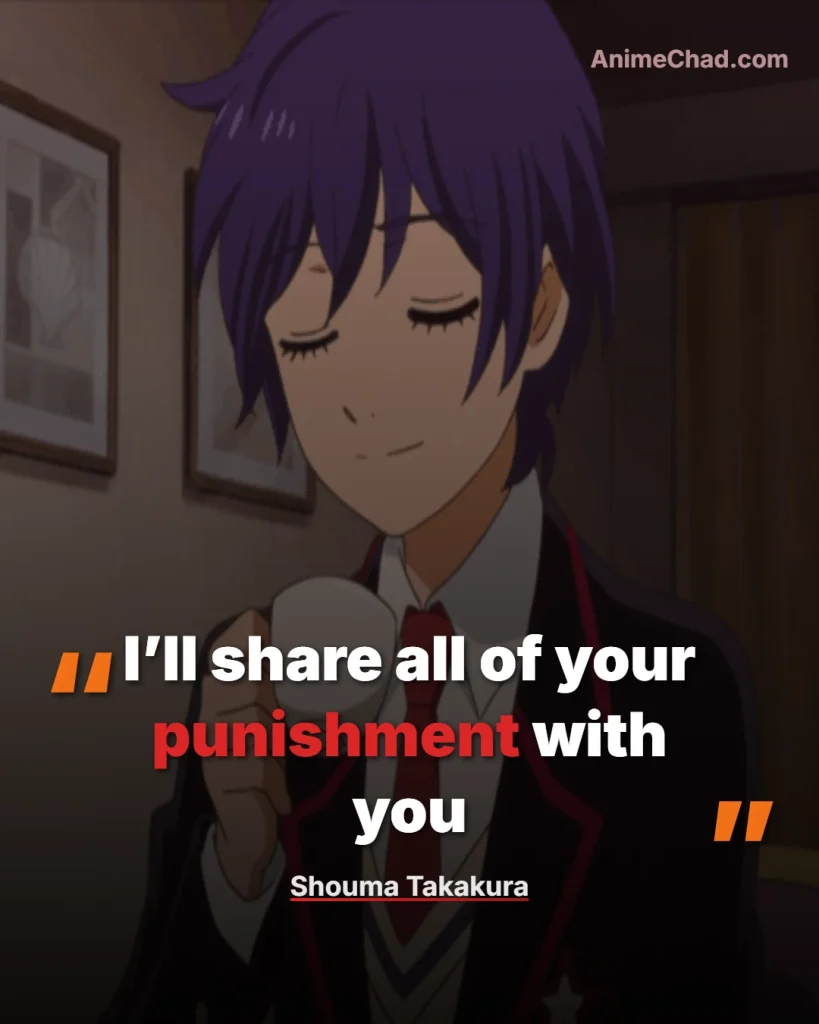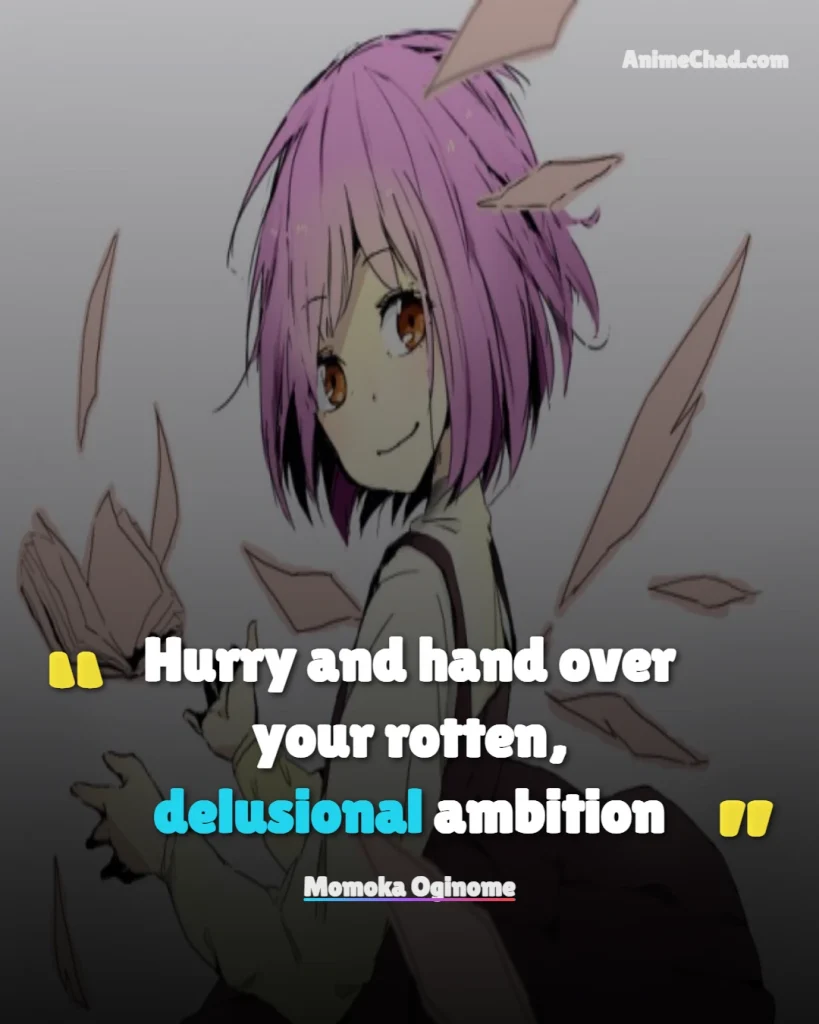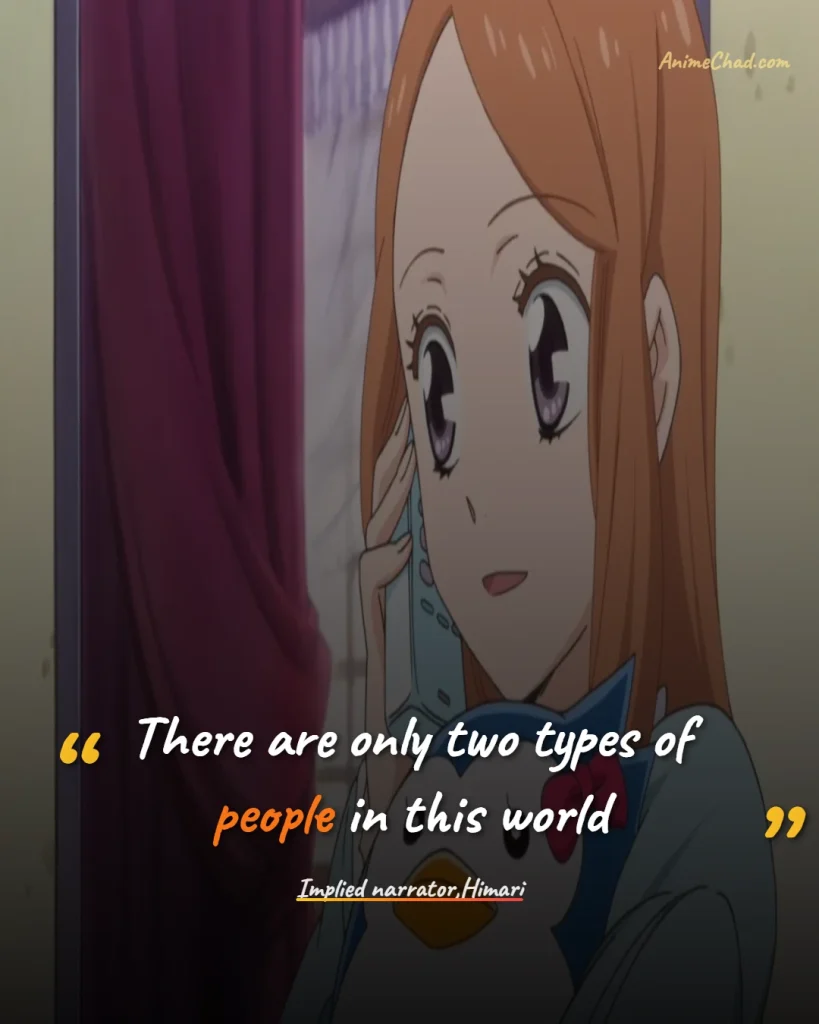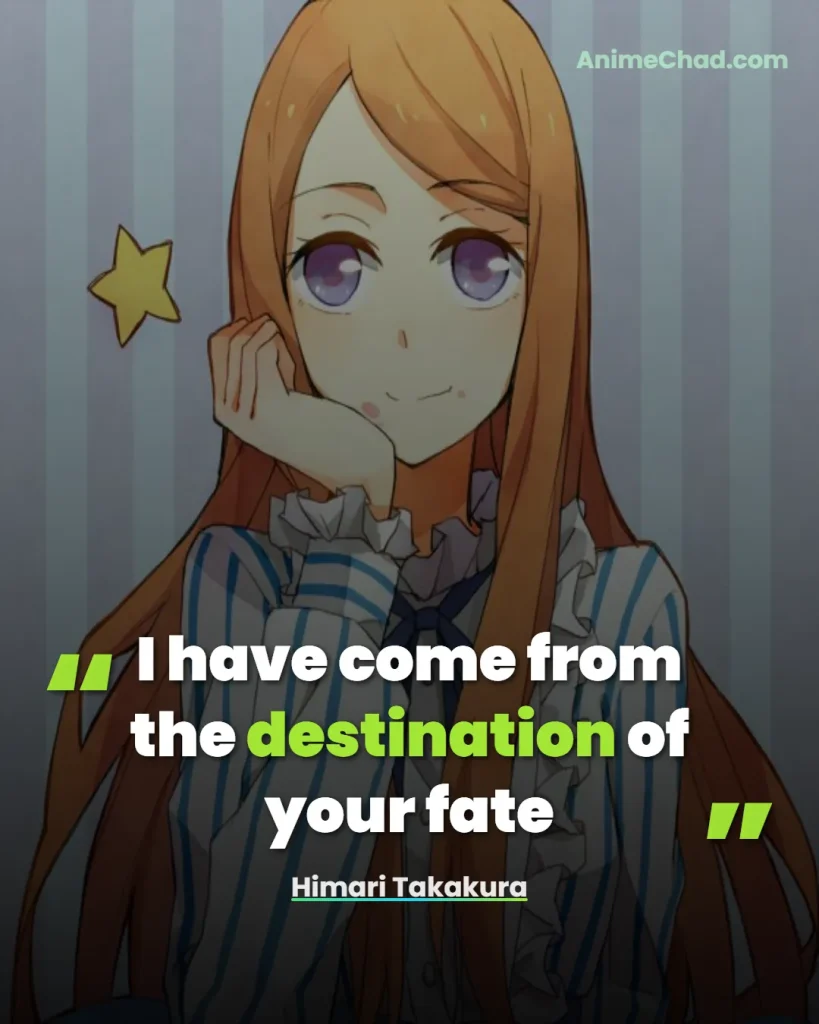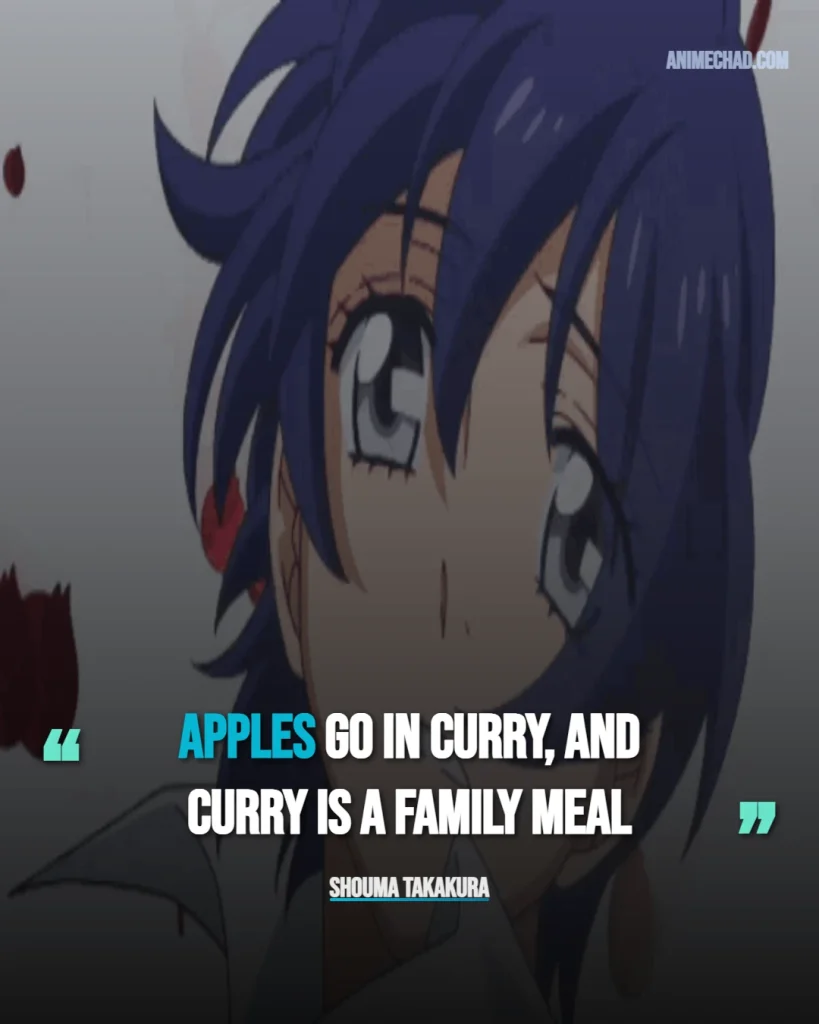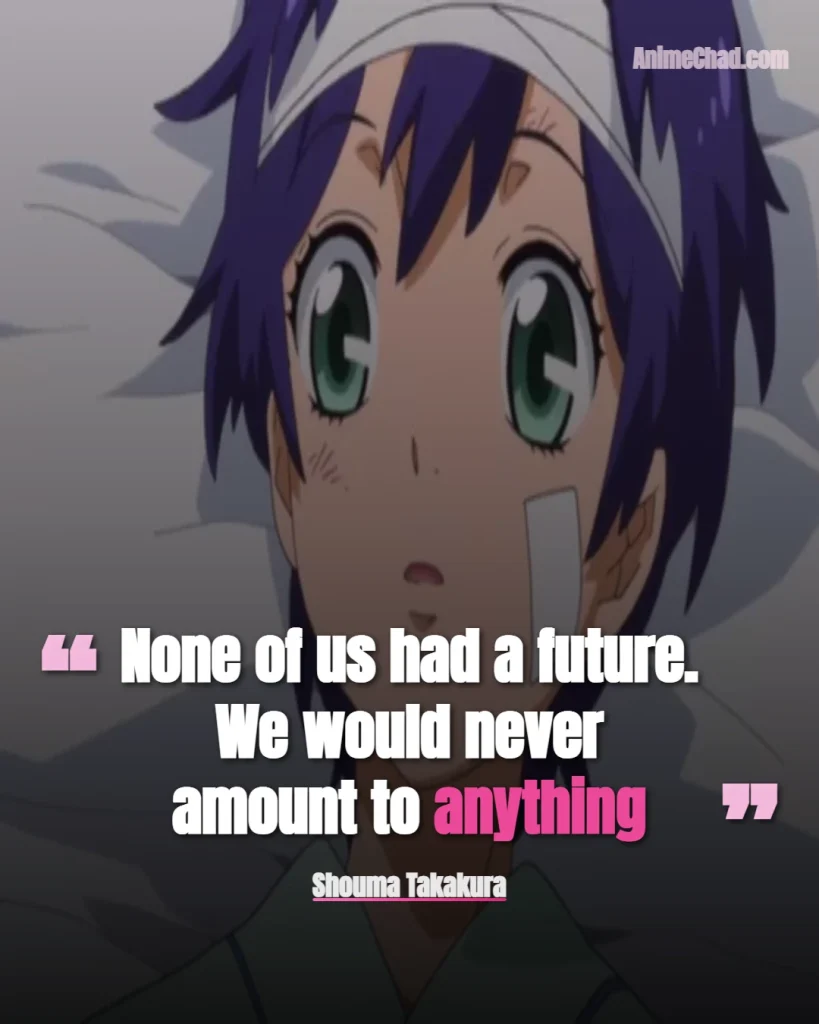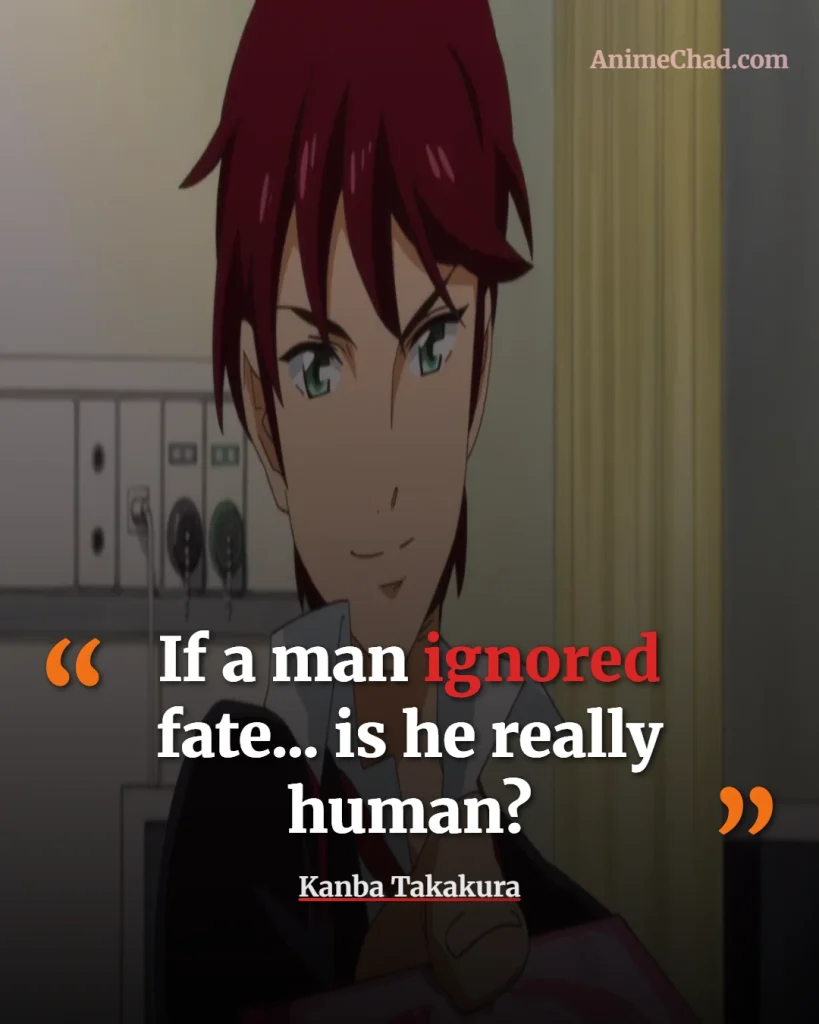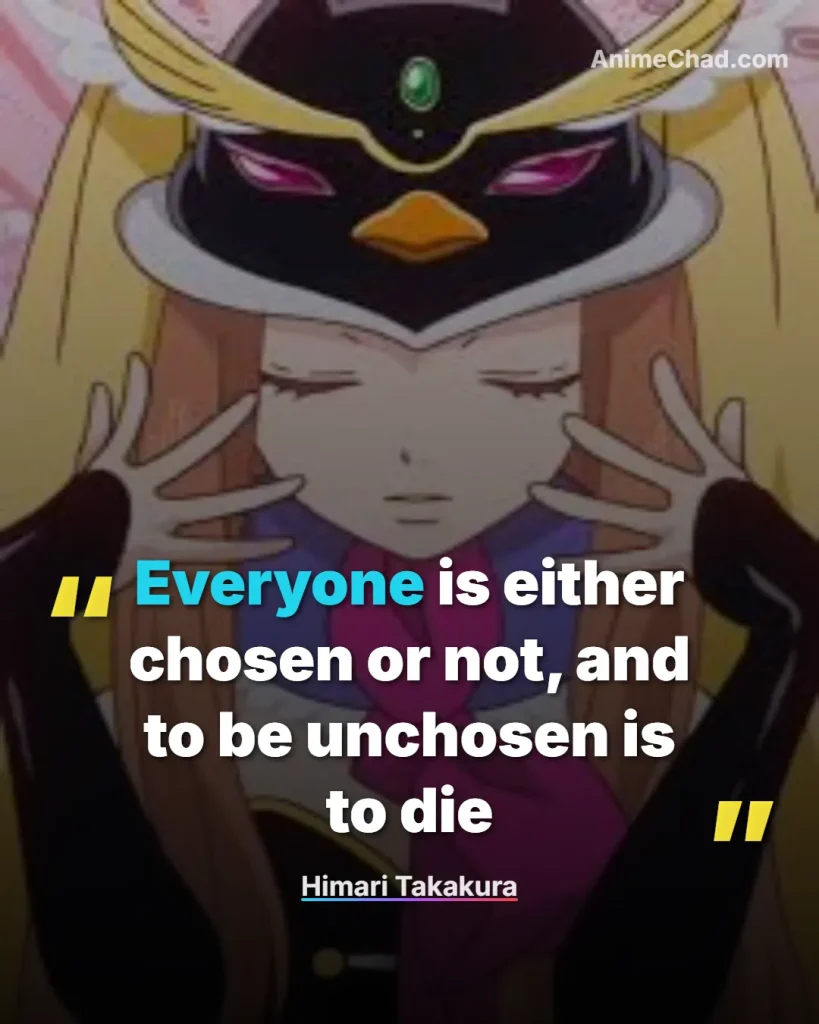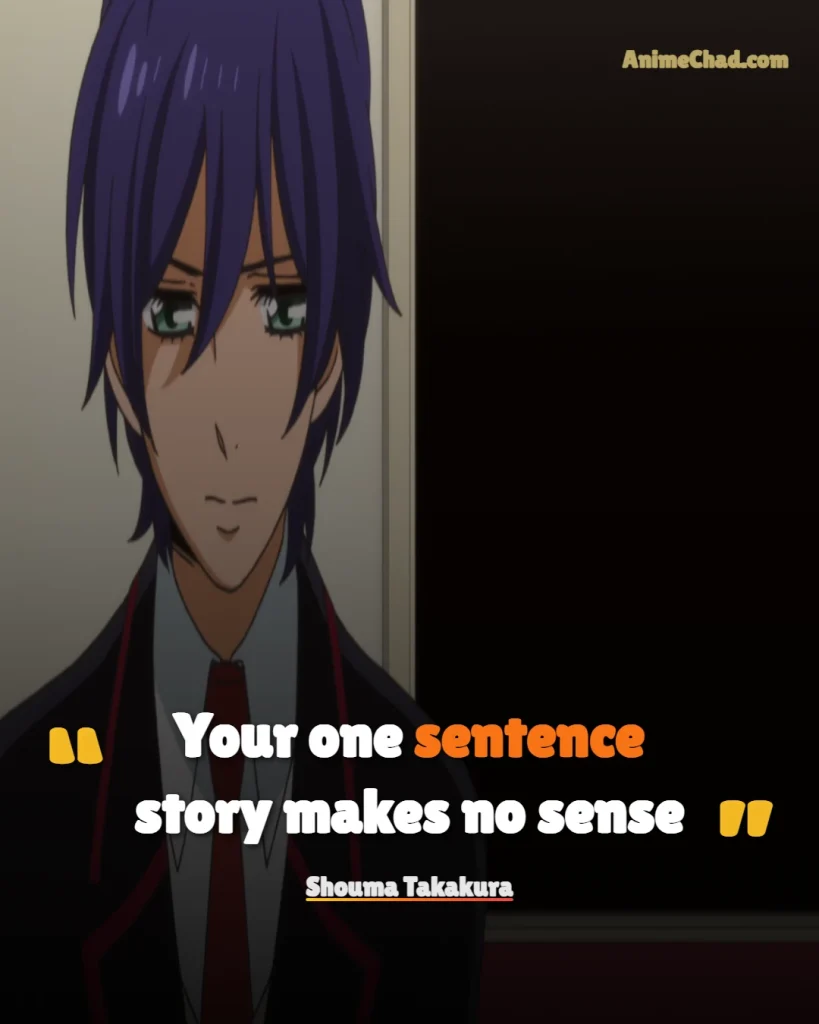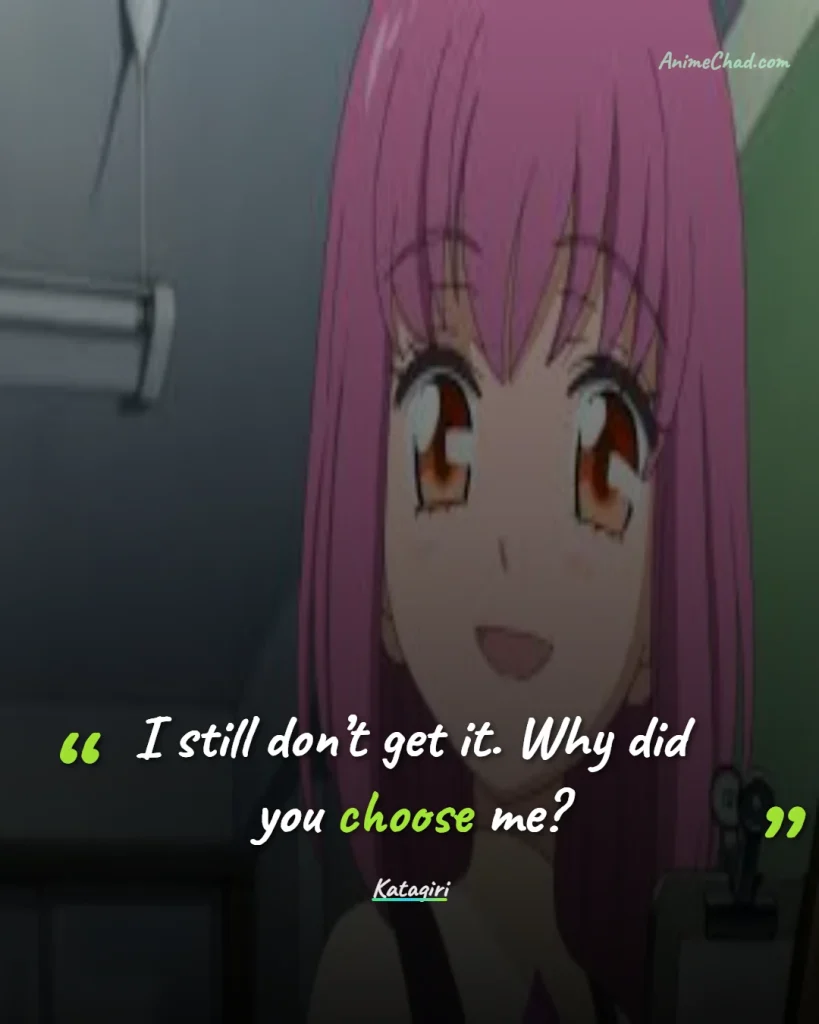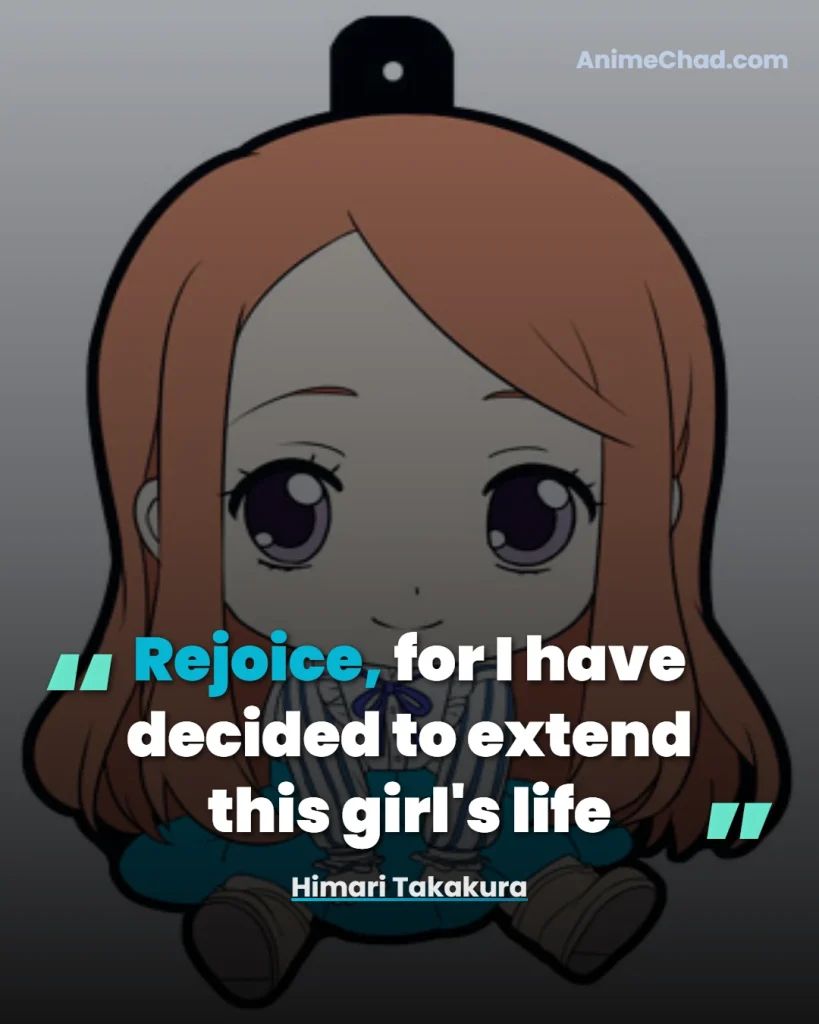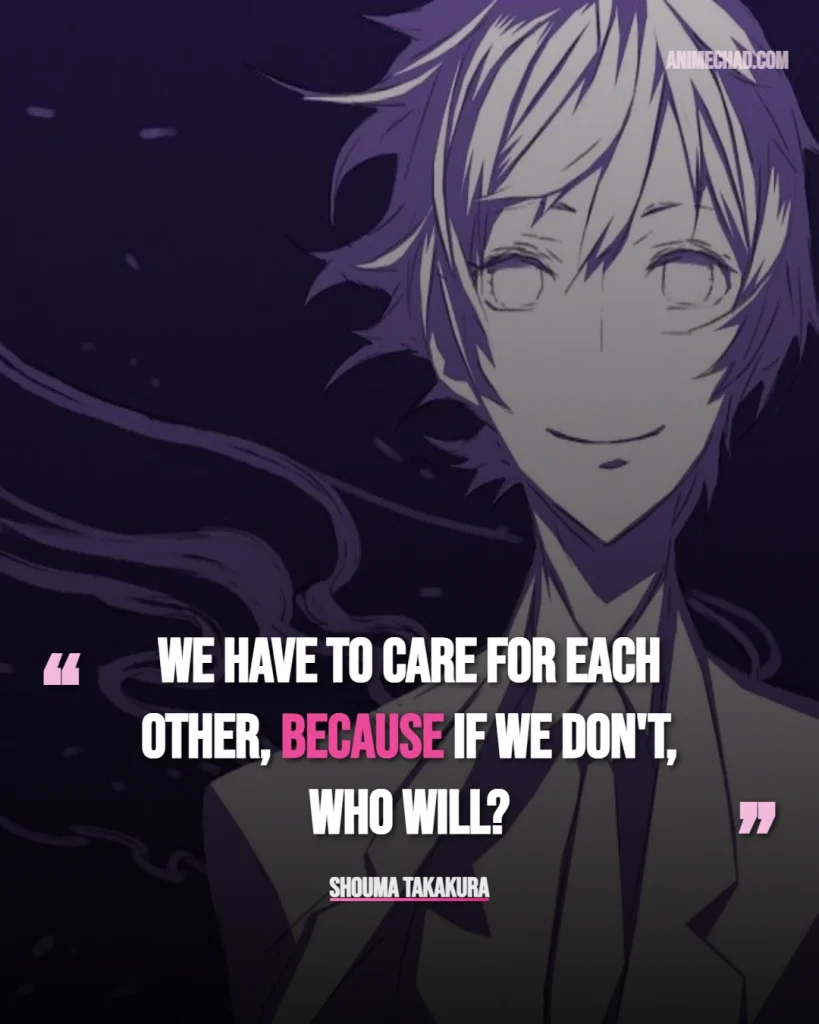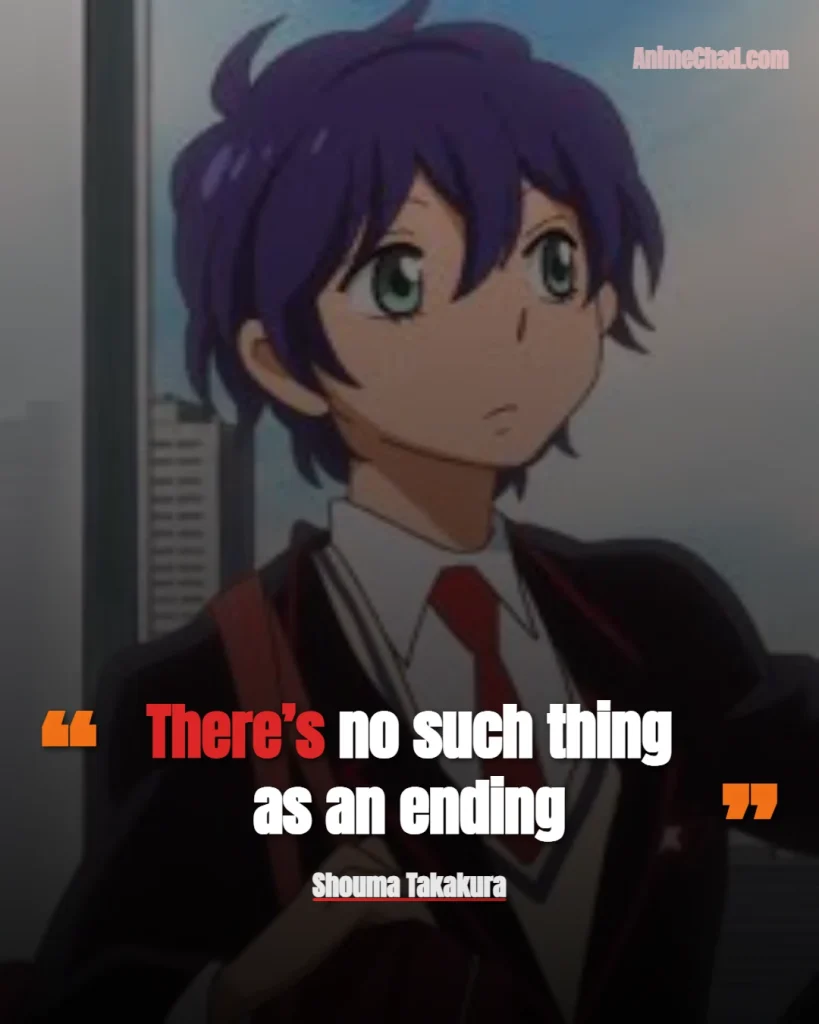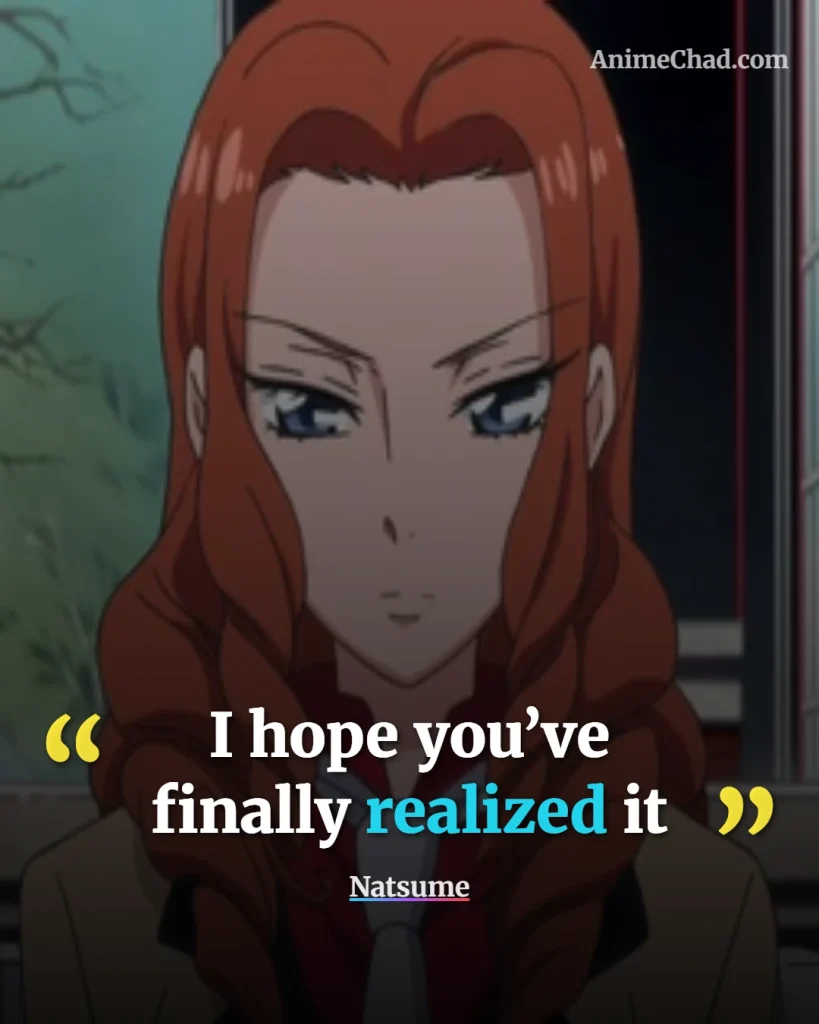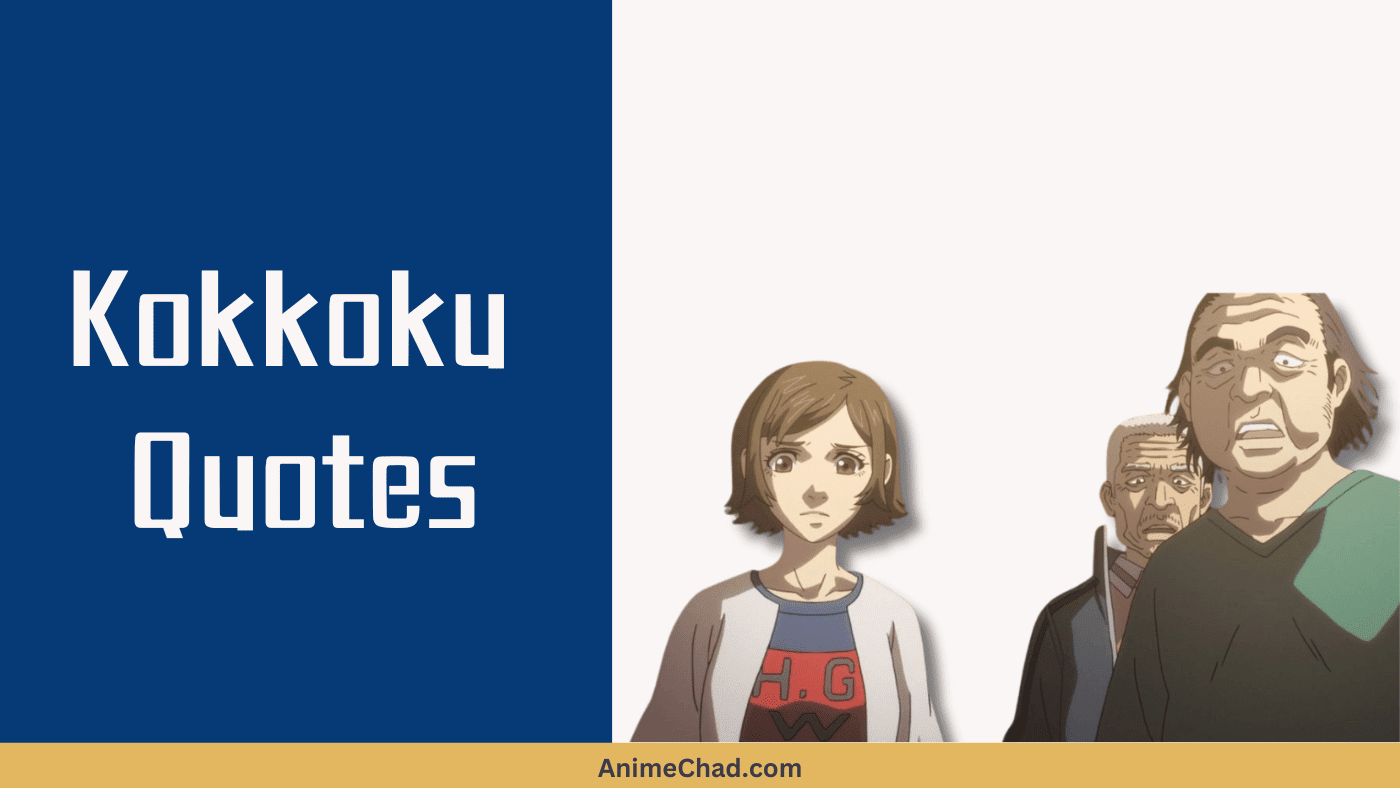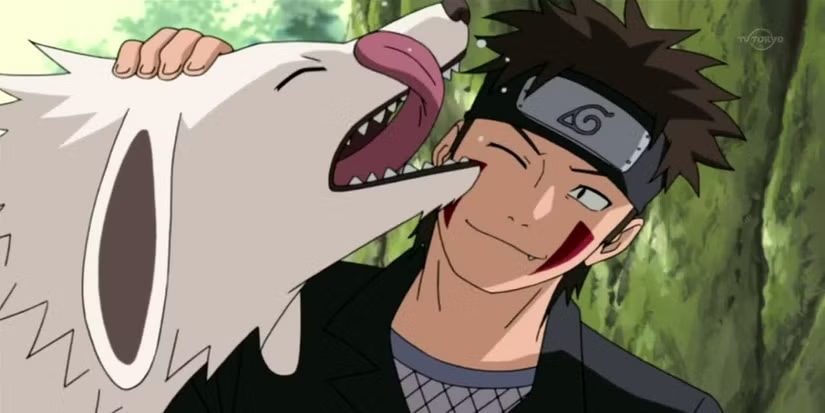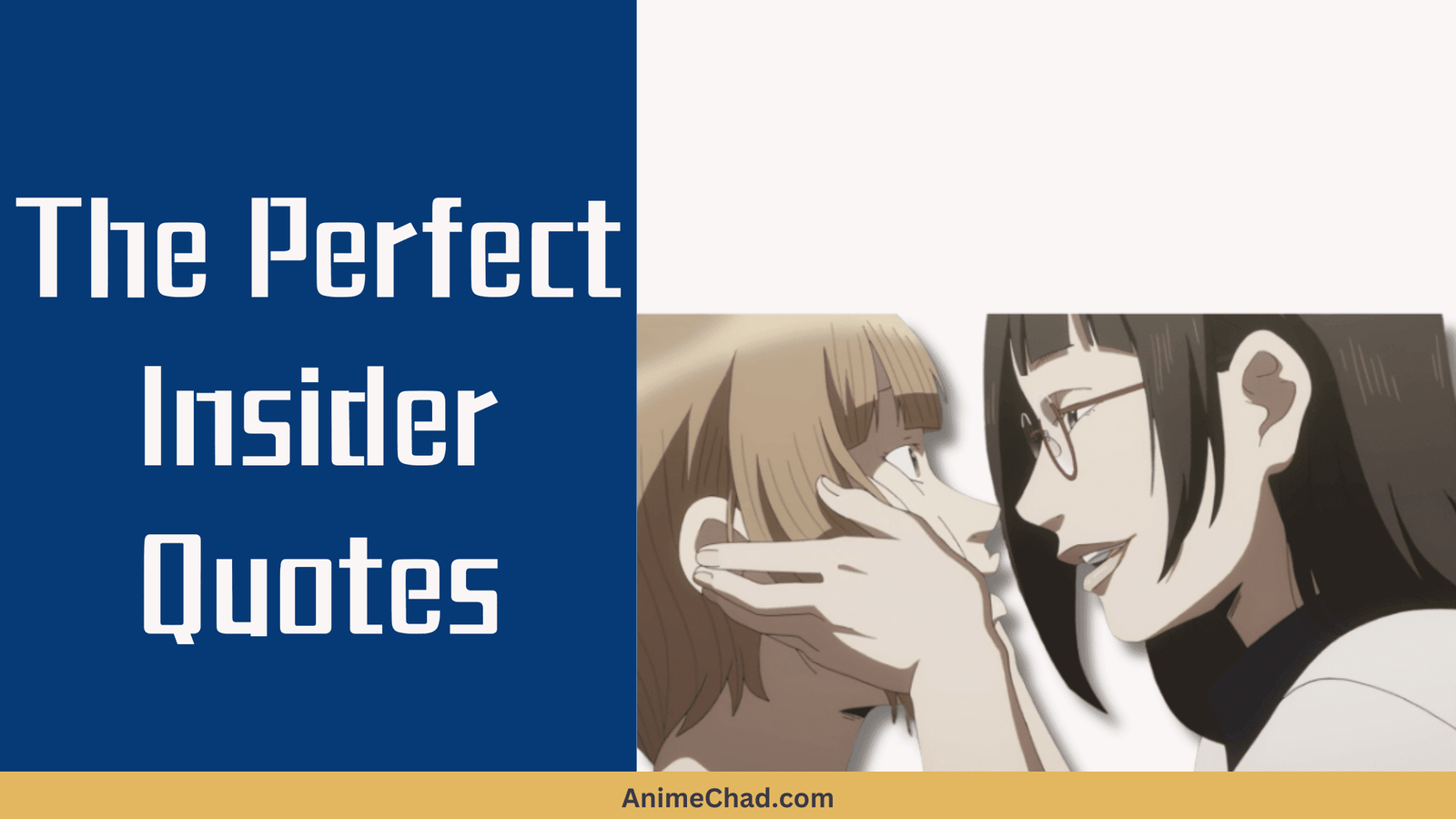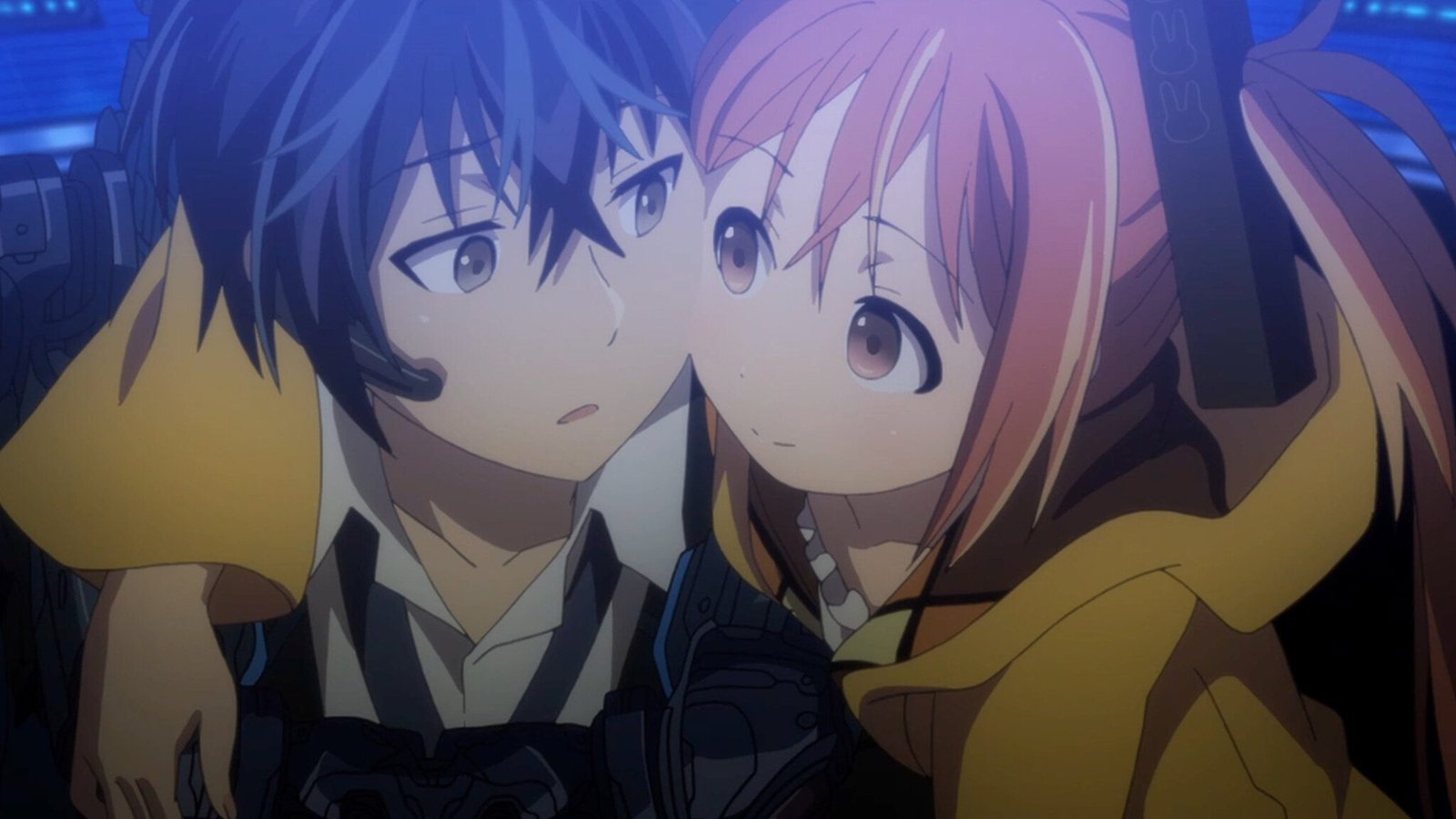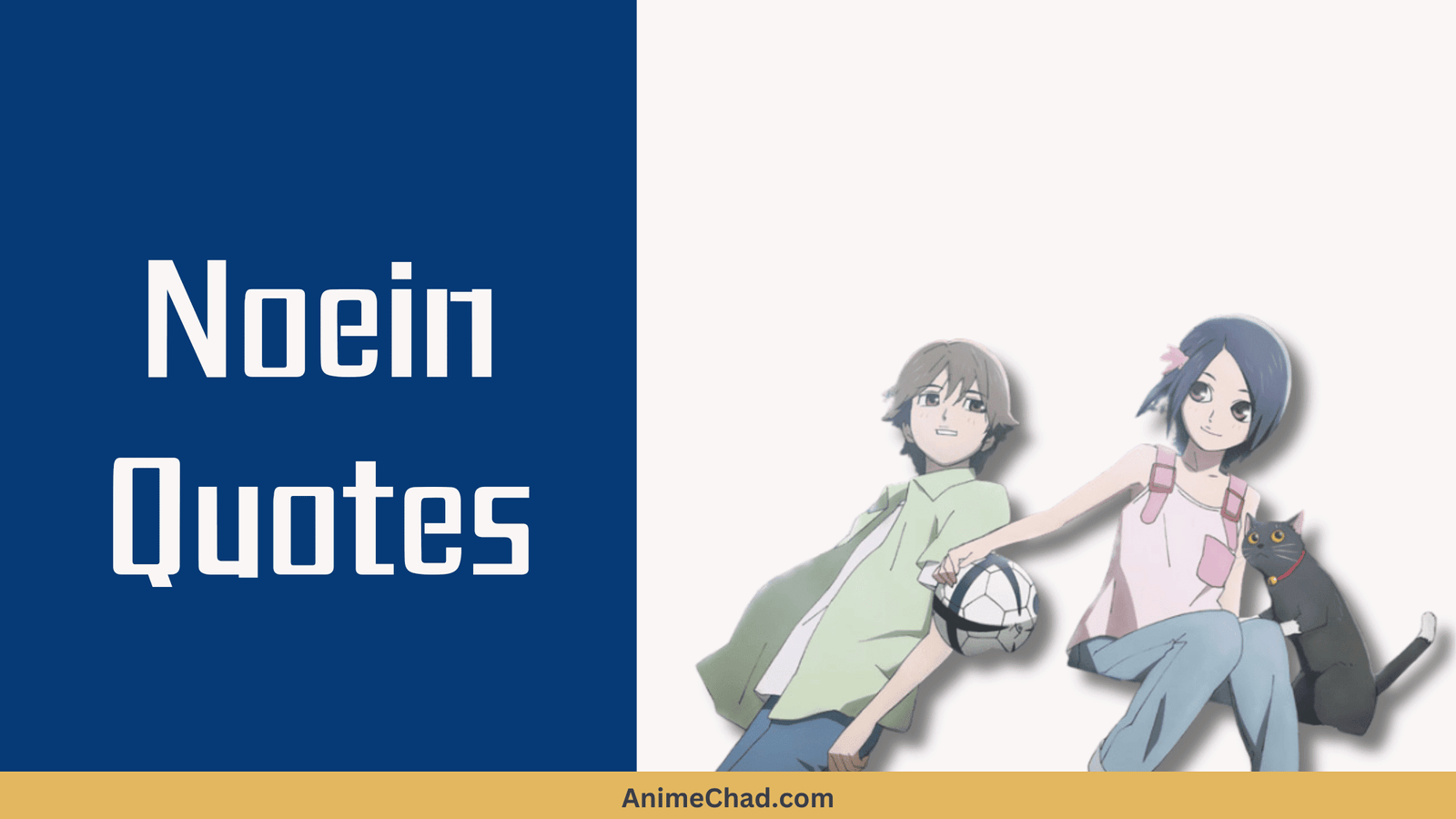Mawaru Penguindrum follows the Takakura siblings—Kanba, Shouma, and the ailing Himari—as they pursue the mysterious Penguin Drum to defy fate and save her life. The anime delves into profound themes of fate versus free will, family bonds transcending blood, isolation in self-imposed “boxes,” and survival through love and choice.
This curated collection of 25 canonical quotes captures these elements, highlighting character growth across key arcs from early desperation to climactic revelations.
I hate the word “fate.”
Episode 1 (The Bell of Fate Tolls)
Shouma Takakura
Opens the series with raw rejection of predestination, marking Shouma’s growth from fatalistic despair to active family protector.
I love the word “fate.”
Episode 2 (Risky Survival Strategy)
Ringo Oginome
Contrasts Shouma’s view, showing Ringo’s initial obsession driving her diary scheme, evolving into genuine self-determination.
Bring me the Penguin Drum!
Episode 1 (The Bell of Fate Tolls)
Himari Takakura (possessed)
Introduces the core quest with eerie intensity, shifting Himari from fragile sister to vessel of cosmic survival strategy.
Humans are such inconvenient creatures
Episode unknown (Boxes motif arc)
Sanetoshi Watase
Reveals entrapment in ego “boxes,” underscoring theme of breaking isolation for connection amid peaceful introspection.
If everything is caused by fate, then god must be incredibly unfair and cruel
Episode 1 (The Bell of Fate Tolls)
Shouma Takakura
Deepens anti-fate monologue, reflecting siblings’ shared trauma and igniting their defiant bond against injustice.
Survival strategy!
Episode 2 (Risky Survival Strategy)
Himari Takakura (possessed)
Commands brothers into action, symbolizing high-stakes rebellion against terminal destiny in early arc tension.
Don’t worry. Your days of eating dinner alone are almost over
Episode unknown (Ringo’s arc)
Ringo Oginome
Highlights her delusional pursuit of Tabuki, pivotal for her arc from stalker to empowered chooser of real love.
You’re practically transparent. I can’t see you
Episode 20 (Child Broiler flashback)
Shouma Takakura
Emotional plea to abandoned Himari, showcasing his savior complex and theme of choosing the unchosen into family.
The end of the world is nothing but a hypothesis
Episode unknown (Climactic arc)
Unknown speaker
Challenges apocalyptic stakes, emphasizing free will over predetermined doom in series’ philosophical core.
In its deliberate attempt to be real, a fake is actually worth more
Episode 21 (Family dissolution)
Unknown speaker
Questions authenticity amid revelations, aiding Kanba’s ruthless evolution for Himari’s sake.
Money and parents: Don’t think they’ll last forever
Episode 21 slogan
Double-H (narrator)
Warns of impermanence, forcing Kanba to confront self-sacrifice separating him from chosen family.
I’ll share all of your punishment with you
Episode 20 (Child Broiler)
Shouma Takakura
Offers atonement in flashback, highlighting growth from guilt-ridden boy to fate-defier.
Hurry and hand over your rotten, delusional ambition
Episode 23 (Near finale)
Momoka Oginome (Princess of Crystal)
Confronts Ringo’s fate diary, breaking cycles and affirming love’s power over inherited destiny.
There are only two types of people in this world
Episode 20 (Child Broiler)
Implied narrator/Himari
Defines chosen vs. unchosen, central to survival theme and Himari’s transformation via siblings’ choices.
I have come from the destination of your fate
Episode 1 (Possession scene)
Himari Takakura (possessed)
Establishes Penguin Hat’s otherworldly authority, propelling brothers into drum quest with urgent mystery.
Apples go in curry, and curry is a family meal
Episode 21 interpretation
Shouma Takakura (contextual)
Symbolizes found family bonds, countering isolation in late-arc peaceful reflection.
None of us had a future. We would never amount to anything
Episode 1 (Diagnosis aftermath)
Shouma Takakura
Captures pre-quest hopelessness, fueling character arcs toward rewriting their doomed path.
If a man ignored fate… is he really human?
Episode 1 (Kanba’s reflection)
Kanba Takakura
Questions humanity through defiance, revealing his taboo love and relentless drive.
Everyone is either chosen or not, and to be unchosen is to die
Episode 20 (Child Broiler)
Himari Takakura (young)
Exposes brutal origins, linking personal trauma to broader fate-rejection theme.
Your one sentence story makes no sense
Episode 21 (Natsume confrontation)
Shouma Takakura
Rejects imposed narratives, marking growth in claiming authentic family truth.
I still don’t get it. Why did you choose me?
Episode 21 (echoed motif)
Katagiri (literary parallel)
Mirrors Takakuras’ choices, emphasizing theme of arbitrary selection yielding profound bonds.
Rejoice, for I have decided to extend this girl’s life
Episode 1 (Possession bargain)
Himari Takakura (possessed)
Sets survival price, blending hope and dread in the series’ high-tension opener.
We have to care for each other, because if we don’t, who will?
Episode finale
Shouma Takakura (implied)
Encapsulates found family ethos, resolving arcs with hope beyond blood ties.
There’s no such thing as an ending
Episode 21 (Dissolution)
Shouma Takakura
Denies finality, promoting renewal and love’s endurance against fate’s cycles.
I hope you’ve finally realized it
Episode unknown (Recurrent motif)
Natsume (antagonist)
Taunts awakening, pivotal for characters transcending boxes into mutual salvation.

